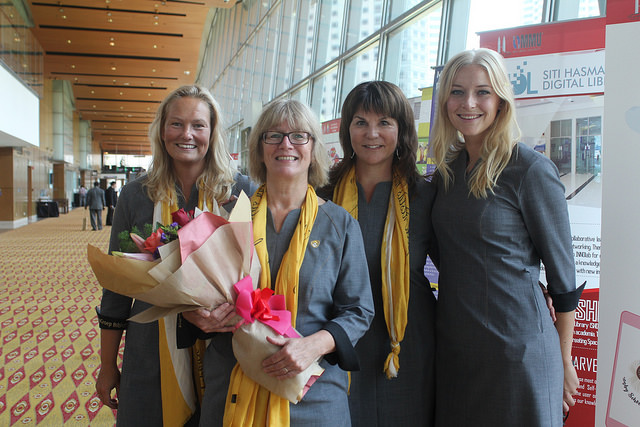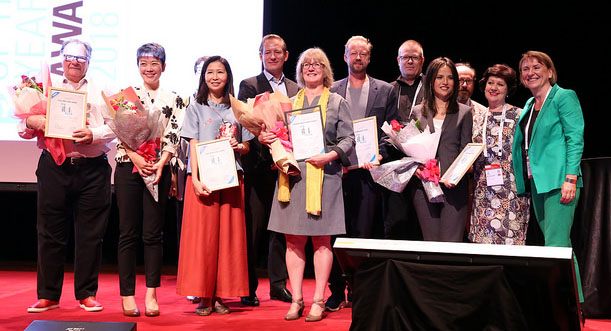Dutch library named the world’s best new public library in 2018
05 September 2018
“You can get married in the theatre or celebrate your birthday in the café. Everything is possible in School 7,” declares Jacinta Krimp, director of the School 7 library in the Netherlands (KopGroep Libraries) winner of the 2018 IFLA/Systematic Public Library of the Year.
An initial field of 35 libraries from 19 different countries across six continents was whittled down to five nominees – and then to one winner who was announced at the 2018 IFLA WLIC in Kuala Lumpur last week. 'School 7' located in the city of Den Helder was a popular choice.
Other nominees were:
- Austin Central Library (USA)
- Villa-Lobos Park Library (Brazil)
- Deichman Biblio Toyen (Norway)
- Tampines Regional Library (Sinagpore)
The winner library was announced by Vice President Martin Brøchner-Mortensen of Systematic in front of a large audience.
The winner is selected by an international panel of experts consisting of representatives from the IFLA’s Public Libraries, Metropolitan Libraries and Buildings and Equipment Sections. For this year’s winner, it is particularly important that the library is accessible to all the different groups within the larger community.
The Public Library of the Year award is presented each year to a public library that is either newly built or set up in premises not previously used for library purposes. Applicants are assessed on six different criteria, including the extent to which the library considers new digital development, local culture and sustainability. In the case of School 7, it was the criterion of “interaction with surroundings and the local culture” that they considered particularly relevant when they applied to be considered for the prize.
“When we started School 7 we wanted to be able to serve as ‘the living room for the community’ – and we’ve already succeeded in that. People come to the library to read, to work, to attend a lecture or to take part in a workshop. Young people study in our library, and new Dutch citizens practice the language. Enthusiastic volunteers teach children programming, children are often read to aloud, and writers tell about their books. People drink coffee in our coffee corner (the Leescafé), read the paper and meet for a chat. All these facilities are now located under the same roof,” explains Jacinta Krimp.

